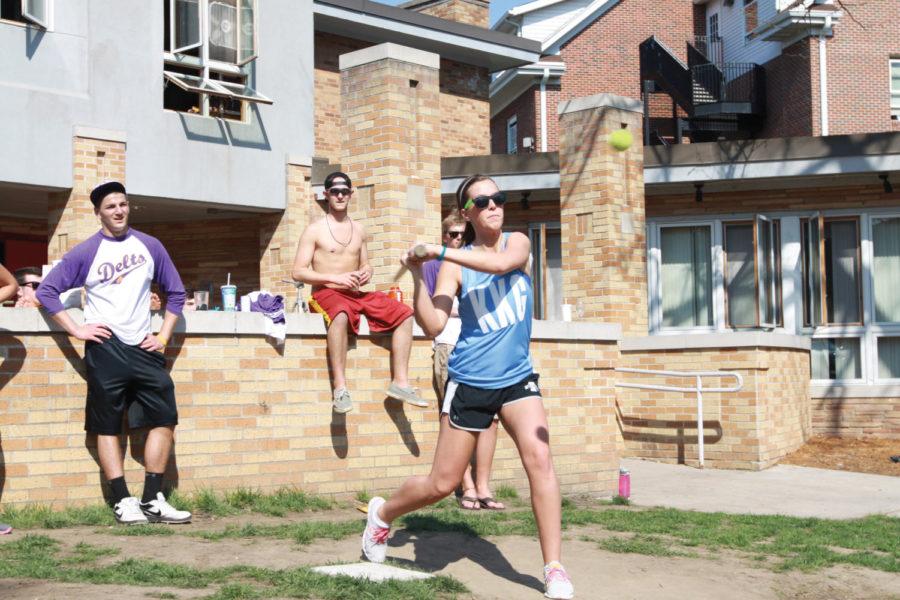Delta Tau Delta Men Step Up to Plate to Find Lou Gehrig’s Cure
March 25, 2012
Each year approximately 5,600 people in the United States are diagnosed with amyotrophic lateral sclerosis. Often referred to as “Lou Gehrig’s Disease,” ALS is a progressive, neurodegenerative disease that affects nerve cells in the brain and the spinal cord.
The ALS Association is the only non-profit organization that aides people diagnosed with the disease. At Iowa State, the men of Delta Tau Delta fraternity are committed to helping find a cure for Lou Gehrig’s.
Sunday, the fraternity hosted its second annual stick ball philanthropy. The event is held in honor of Delta Tau Delta alumnus, Gregory Arp, who passed away in 2010 due to Lou Gehrig’s disease.
“It’s important for us to do this for a brother who was affected by this, and our members really enjoy participating in it,” said Thomas Thatcher, freshman in design and organizer of the tournament.
For the past two years, Delta Tau Delta has been working with the ALS Association and has raised more than a thousand dollars for the organization.
Stick ball, a game similar to slow pitch softball has been a favorite past time of the fraternity members for several years. The men had played the game on the front lawn of their house located on Sunset Drive and decided to bring the game to the community.
“We wanted to bring the game to the community,” Thatcher said. “It’s fun and also for a good cause.”
For the tournament, $5 allows participants to play and also receive a meal of grilled cheese and dessert. Shirts were also available for sale. In the past, students have taken part in the tournament. This year, about 200 people were expected to take part in the games and raise more than a thousand dollars for the ALS Association
After diagnosis, patients have an average of two to five years to live. According to the ALS Association website, those who have Lou Gehrig’s eventually die because they lose the ability to initiate and control muscle movement.
Those with the disease often have trouble with controlling functions like speech, swallowing and breathing. As voluntary muscle action is progressively affected, those in the later stages of the disease often become completely paralyzed.
While there is a drug that slows progression of the disease, no cures or treatments have been shown to significantly halt or reverse ALS. Although no cure has been found, the ALS Association helps aid people and is on a mission to find treatments that will yield a cure for the disease.








Amy Larder | Jun 16, 2023 at 3:27 am
My husband who had been diagnosed with Bulbar ALS disease for 2 years at the age of 63 had all his symptoms reversed with Ayurveda medicine from naturalherbscentre. com after undergoing their ALS/MND natural protocol, he no longer requires a feeding tube. God Bless all Lou Gehrig’s disease Caregivers. Stay Strong, take small moments throughout the day to thank yourself, to love your self, and pray to whatever faith, star, spiritual force you believe in and ask for strength. I can personally vouch for these remedy but you would probably need to decide what works best for you.
Eugen Lavole | Jan 23, 2023 at 1:30 am
This was great, I have been researching for a while now, and I think this has helped. Have you ever come across Health Herbs Clinic Amyotrophic Lateral Sclerosis HERBAL FORMULA (just google it). It is a smashing one of a kind product for reversing ALS completely. Ive heard some decent things about it and my buddy got amazing success with it.